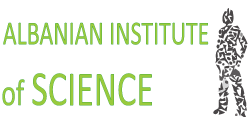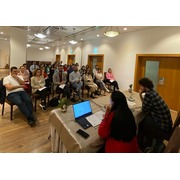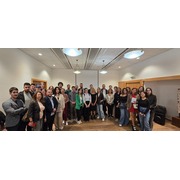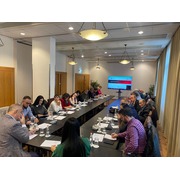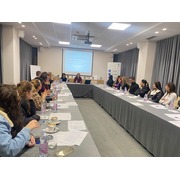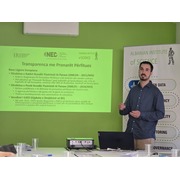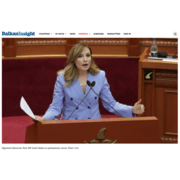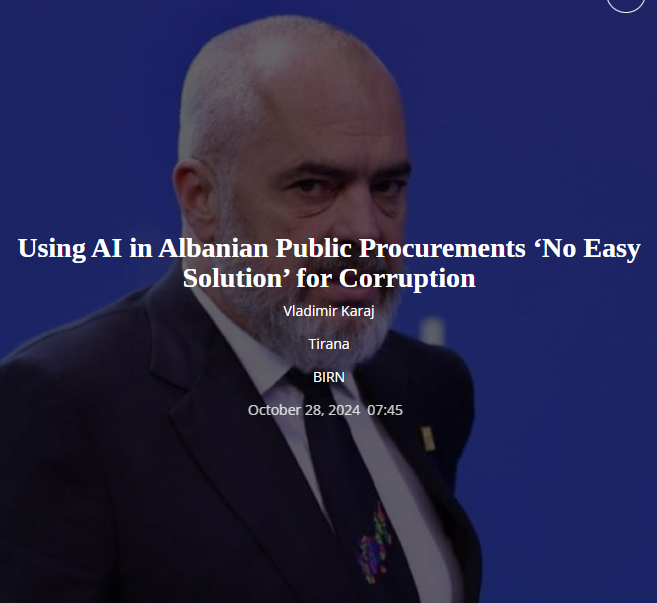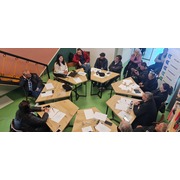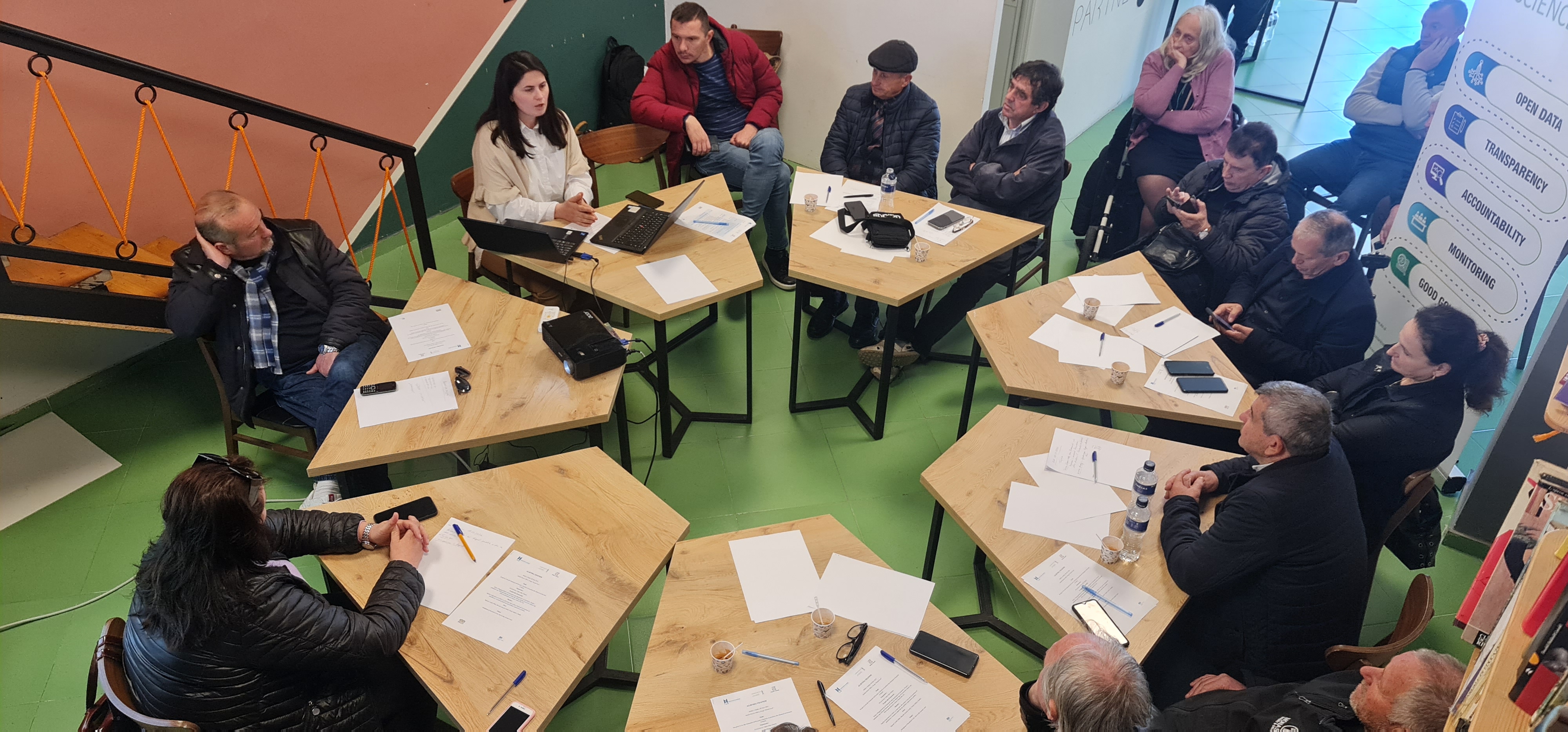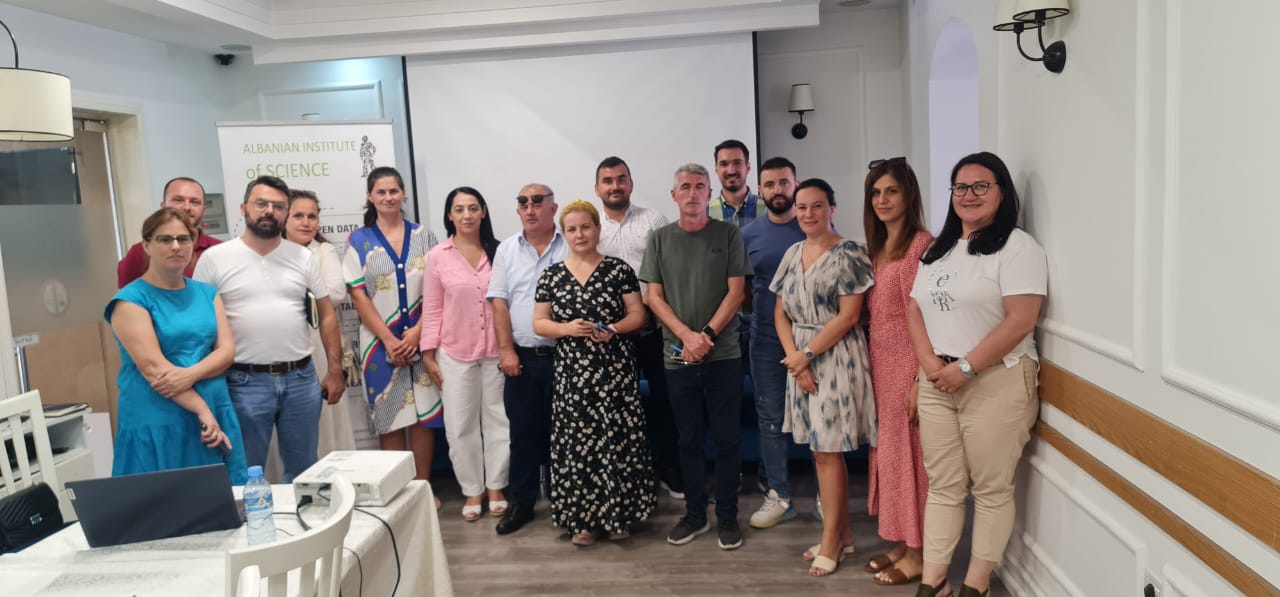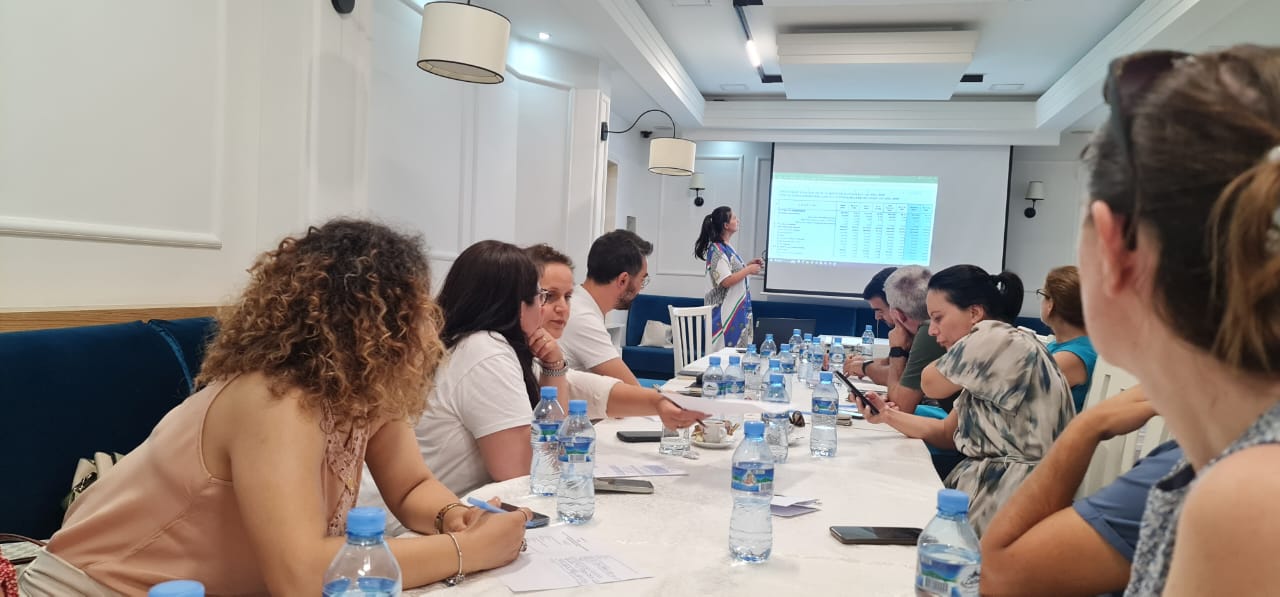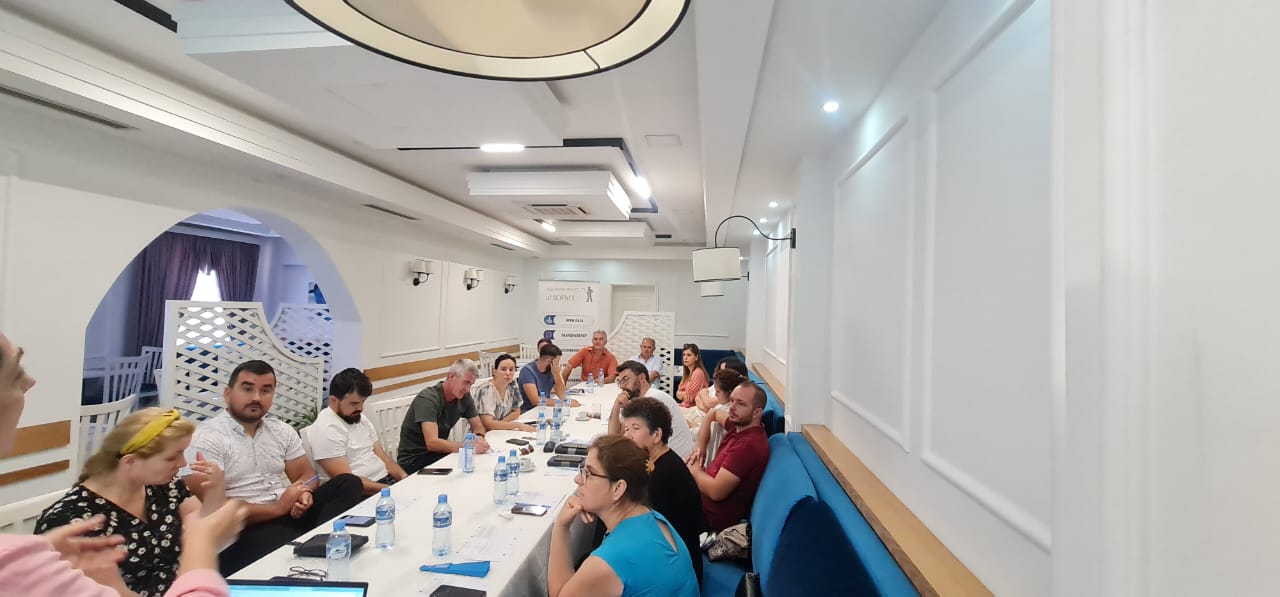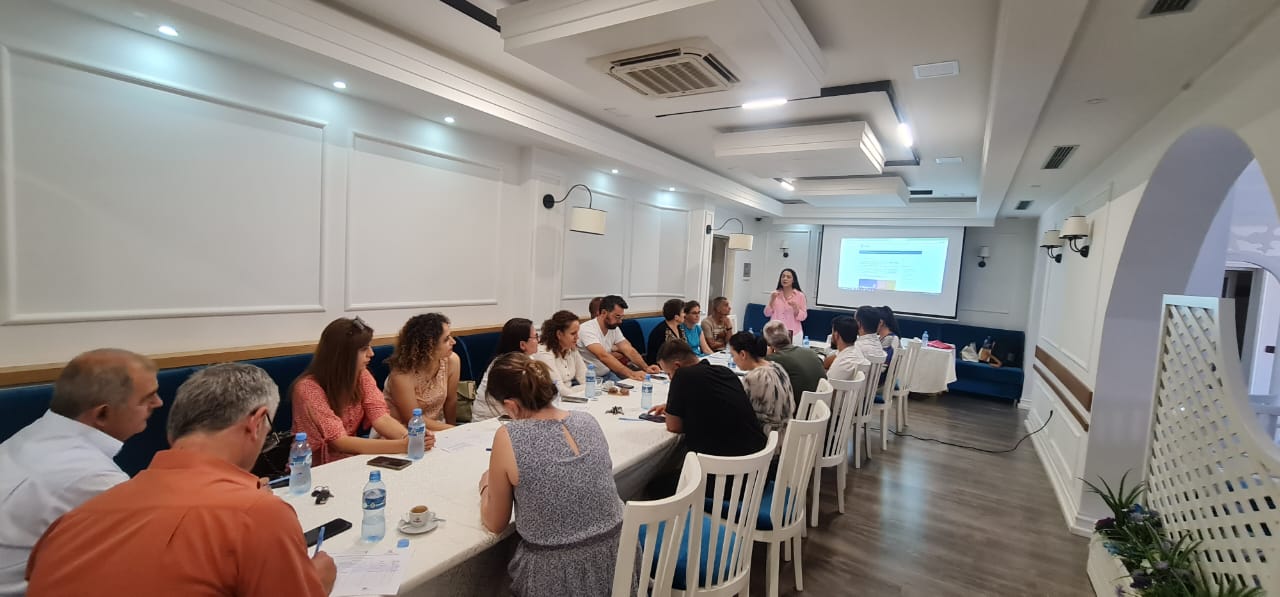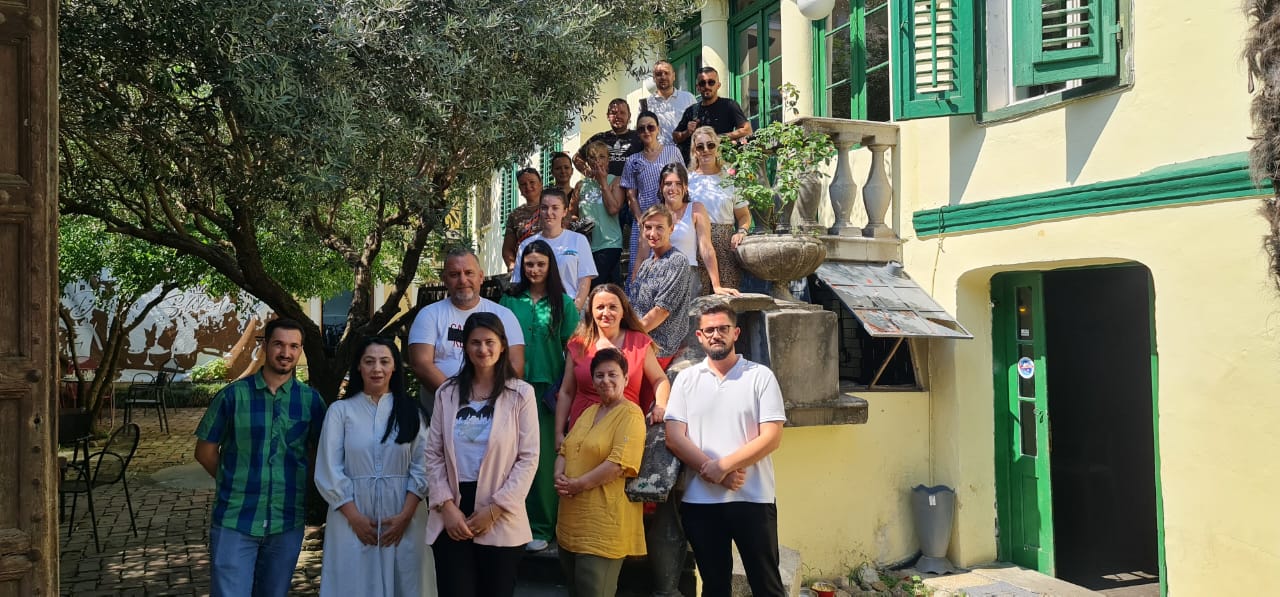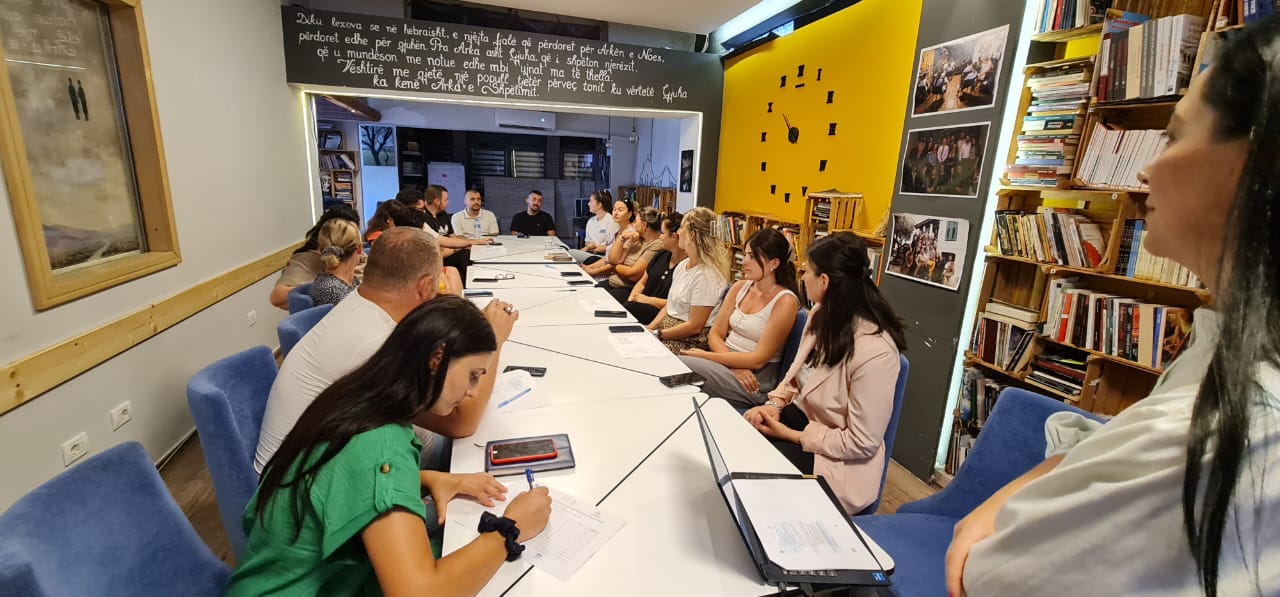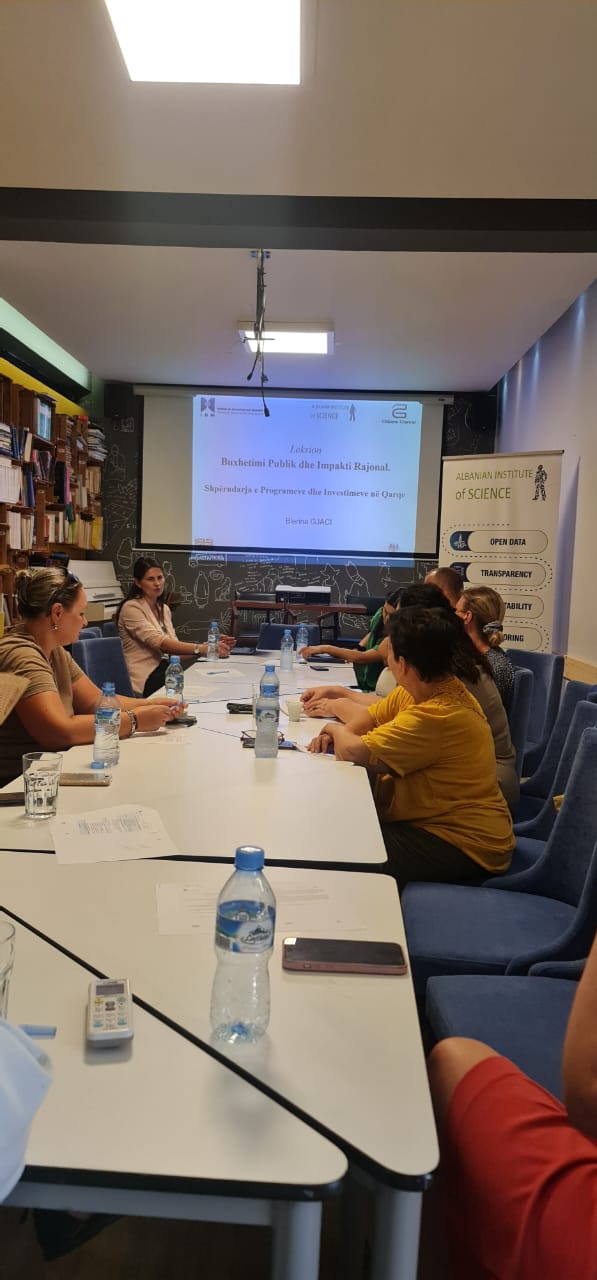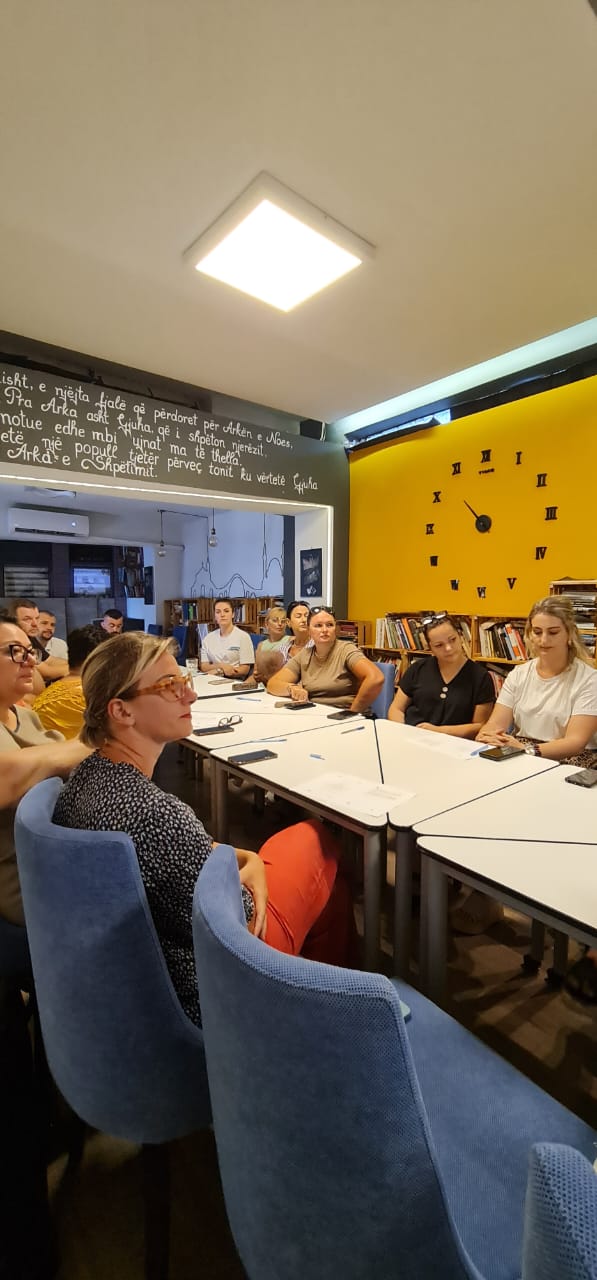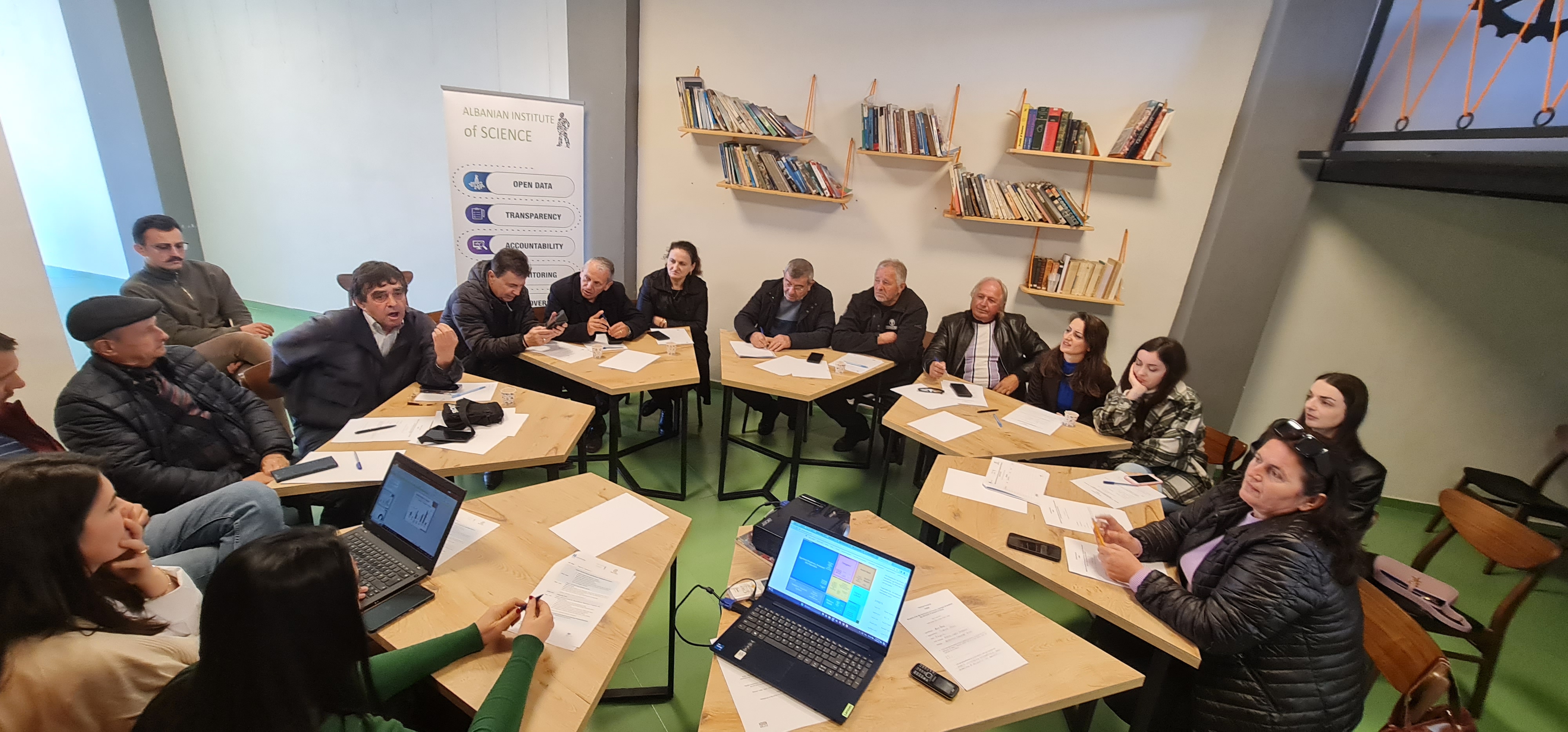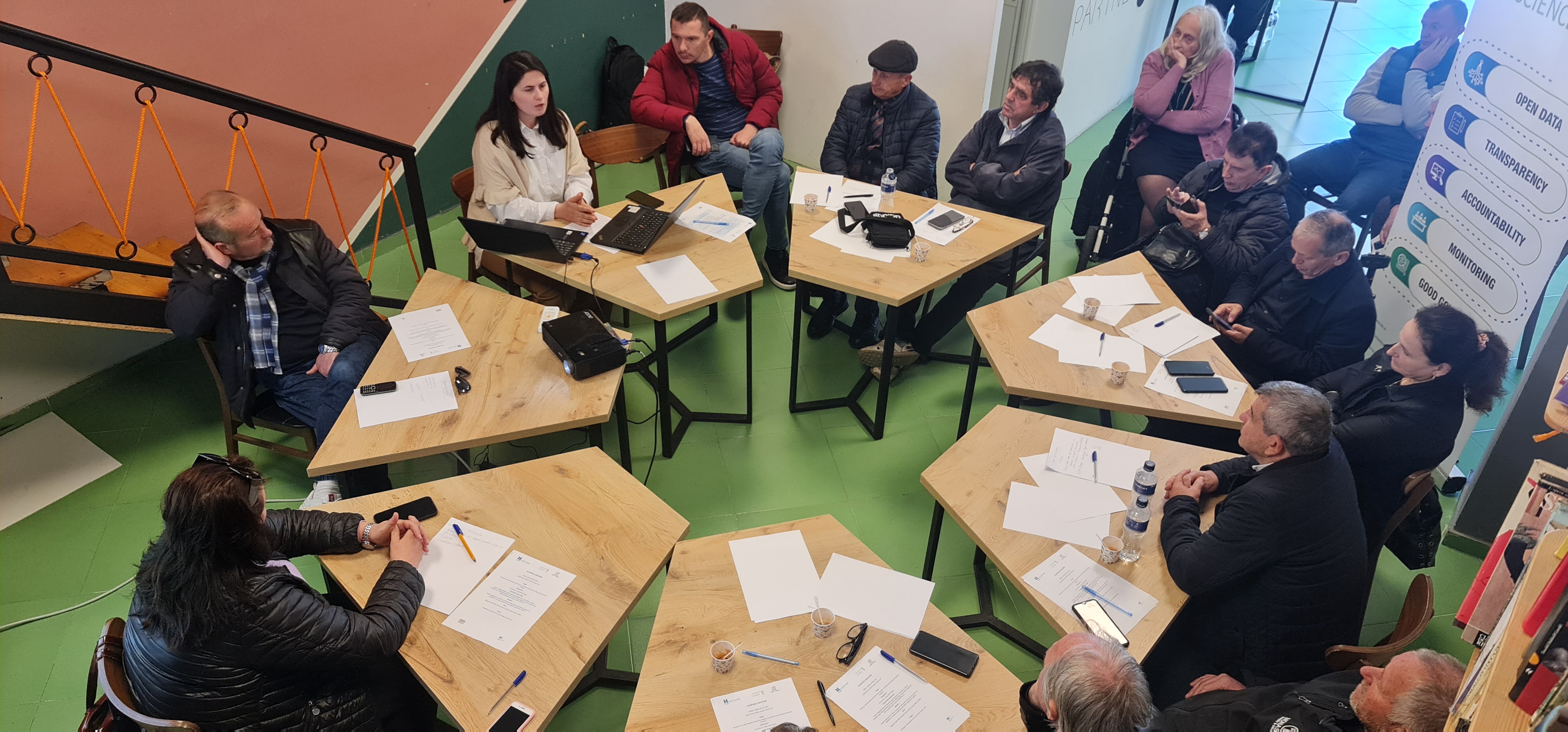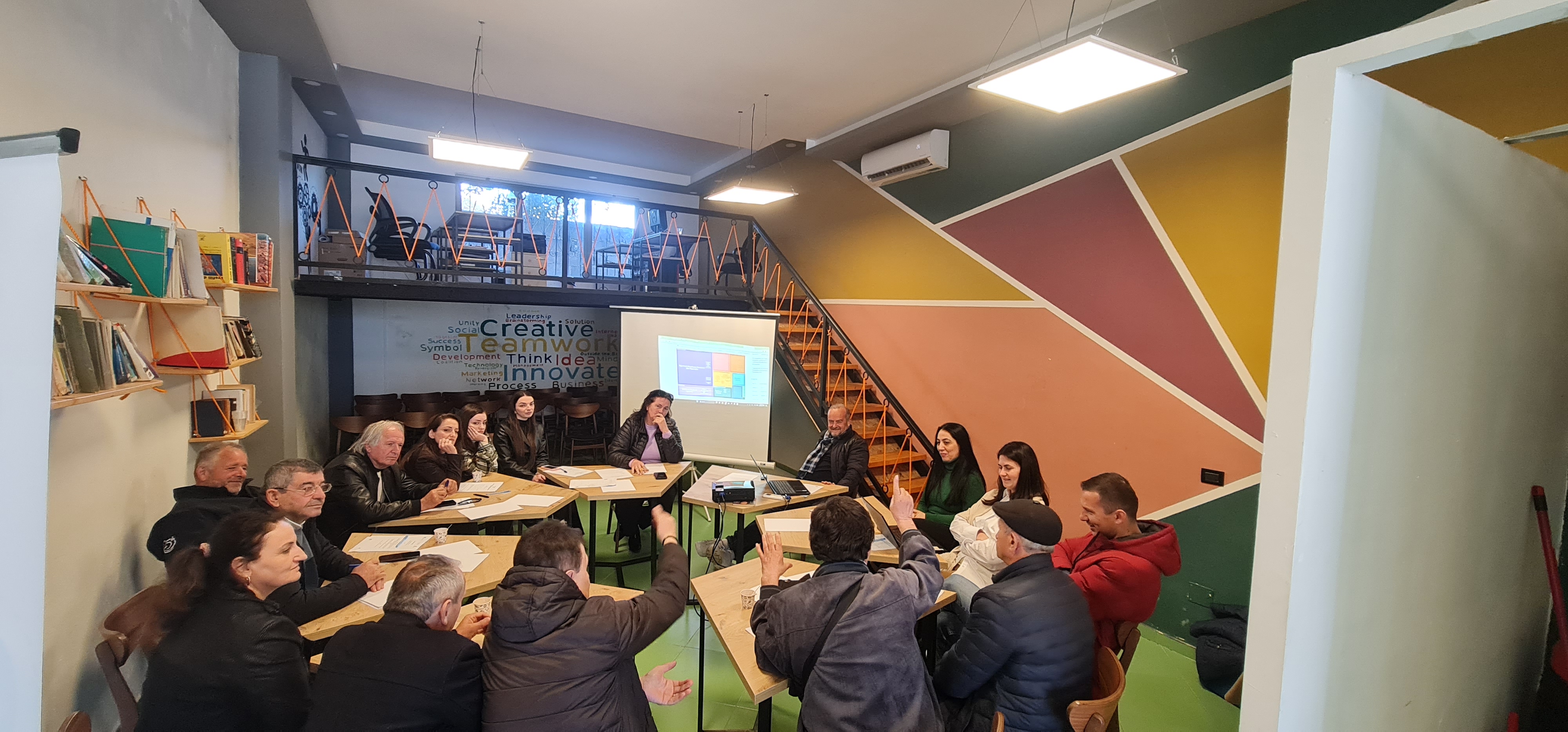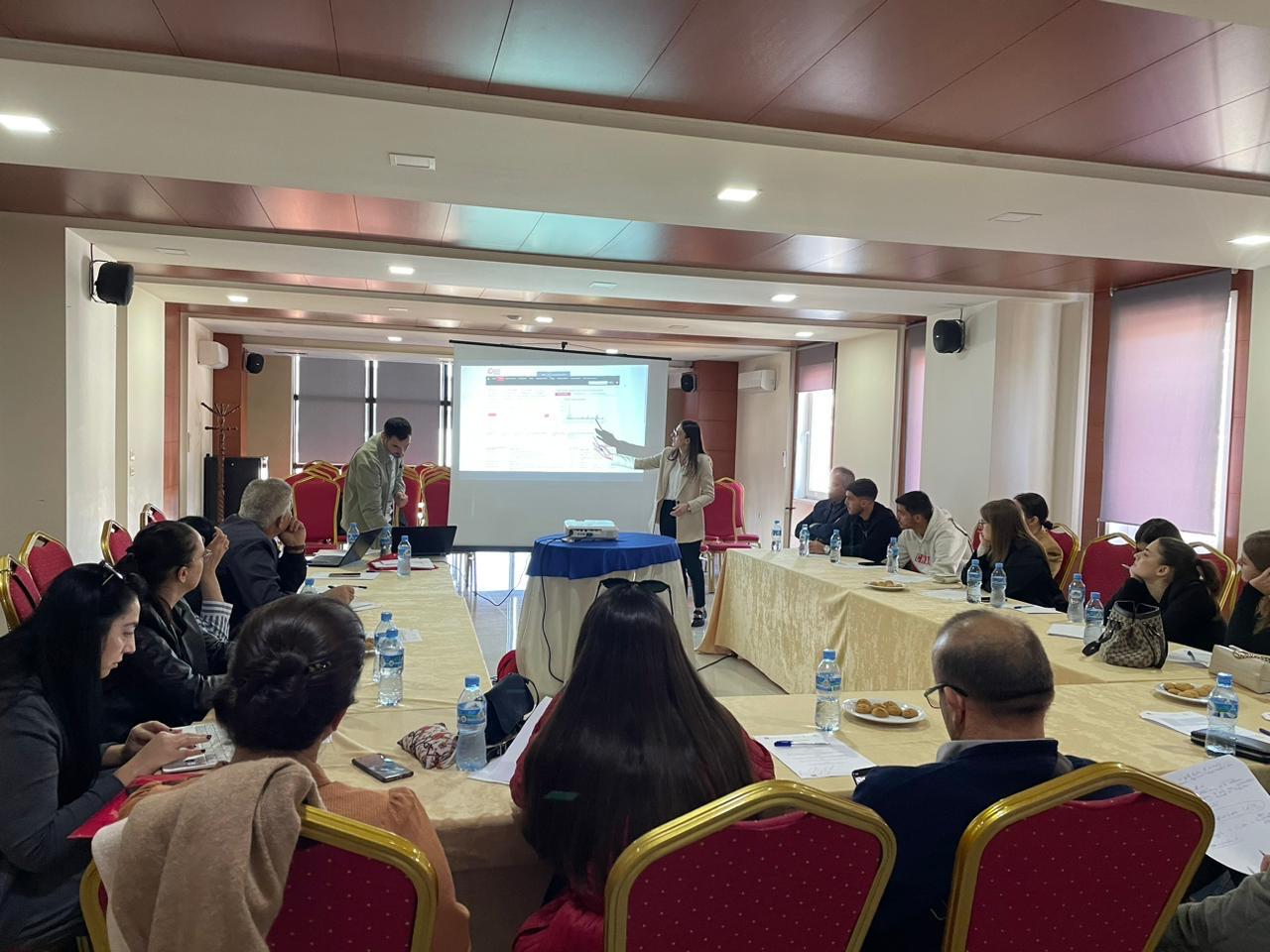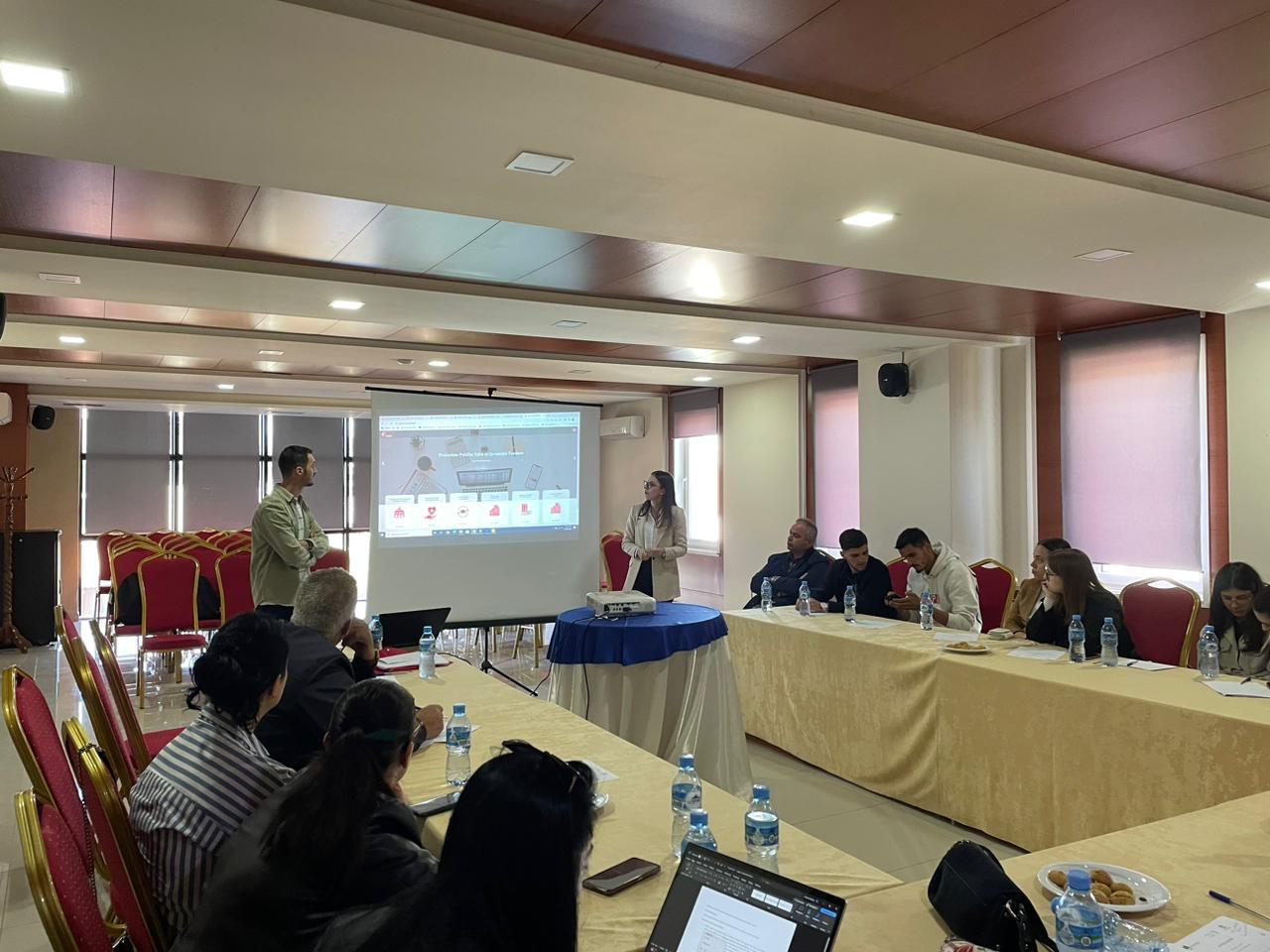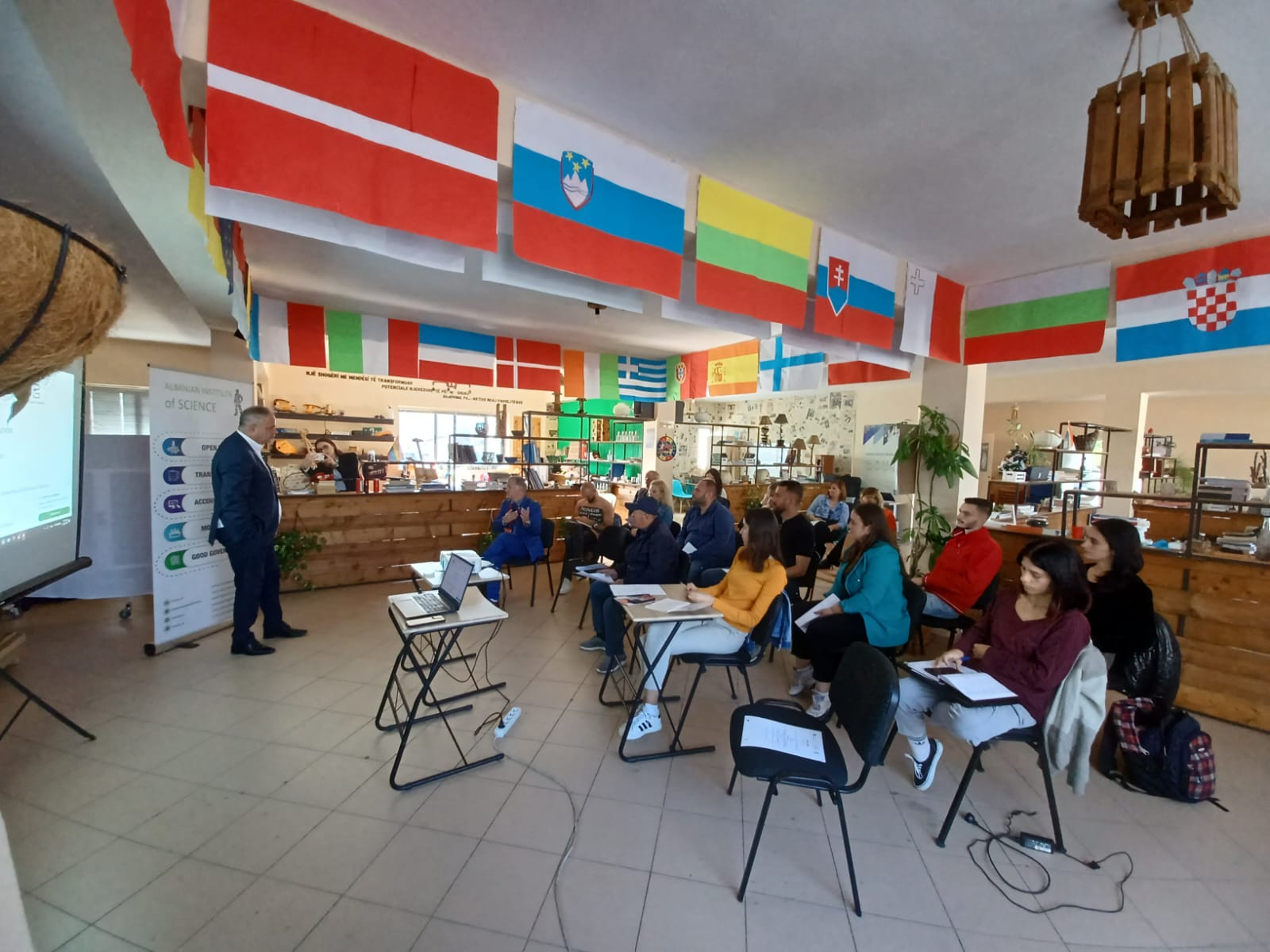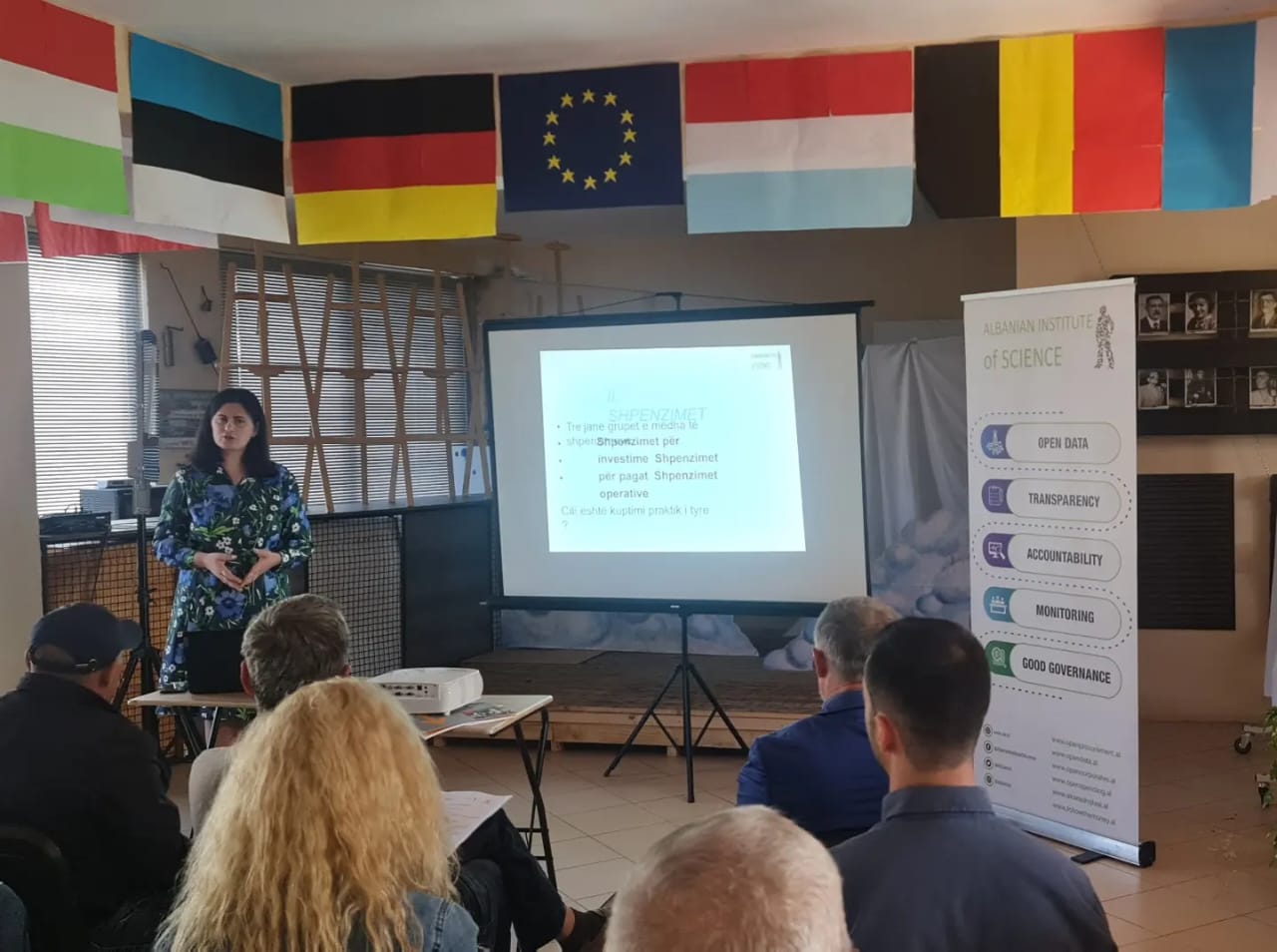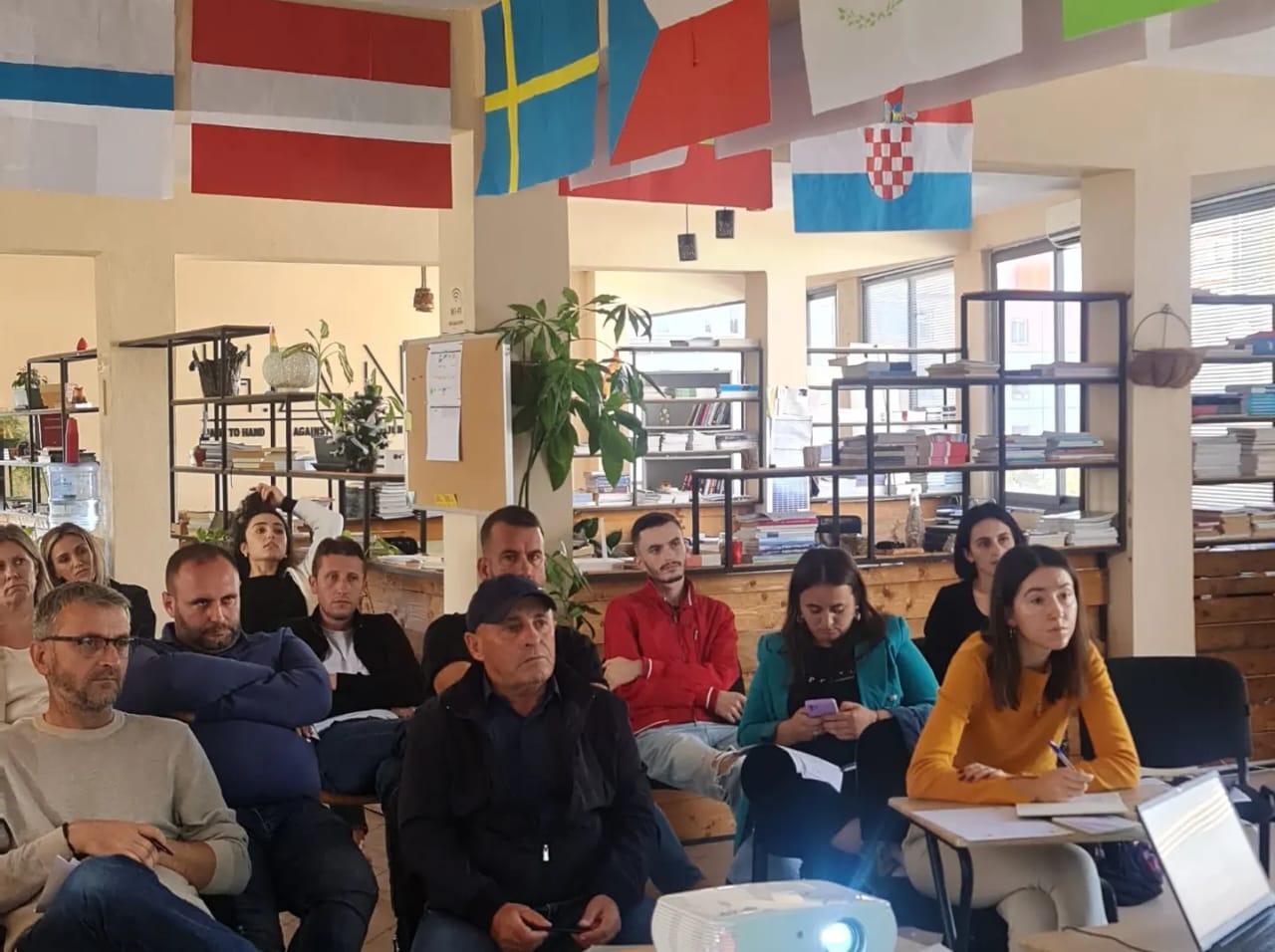On November 27th, the organization AIS, a leading advocate for Open Data Albania, hosted a training session for local organizations, activists, and journalists on the topic: “Civil Society and Parliament in the Process of Drafting, Consulting, and Approving the State Budget.”
The event was part of the project “Increasing Parliamentary Responsiveness to Citizens’ Concerns,” supported by the British Embassy in Tirana and implemented by a consortium led by IDM in collaboration with AIS and Citizens Channel.
The training focused on enhancing the skills and knowledge of civil society organizations (CSOs), activists, and media representatives, equipping them to engage effectively in state budget planning. The ultimate objective was to promote citizen participation in shaping policies on the allocation and use of public funds.
The initiative brought together 30 participants representing 22 CSOs from 17 municipalities across Albania, reflecting a diverse and nationwide effort to strengthen civic engagement in fiscal governance.
- Out of the 30 (thirty) participants, 27 were representatives of non-governmental organizations (NGOs), one was a local journalist, and two were youth activists.
- In terms of gender representation, 17 participants (57%) were male, while 13 participants (43%) were female.
- The training included representatives from 17 municipalities, as detailed in the list below.
- A total of 22 Civil Society Organizations were involved.
During the training, the Civil Society representatives shared ideas and suggestions aimed at strengthening the role of civic actors in the consultation and advocacy processes to promote equitable and well-distributed budgets.
Assistance for Their Work and Advocacy for Rights-Based Budget Planning in Parliament
1. The importance of systematic and ongoing training on legal instruments and communication strategies with Parliament Representatives (MPs) was highlighted.
2. The necessity for support through “Umbrella” programs or projects with a comprehensive and long-term approach to working on Equitable and Inclusive Budgets was emphasized.
3. The capacity-building cycle should focus on equipping individuals with knowledge about budgets and the related preparation processes, providing training on understanding and analyzing budgets for various programs, and offering assistance in advocating for improved budgets that support the causes or groups they represent. Additionally, it should include support for preparing meetings with the Ministry of Finance or testimonies in parliamentary committees. Representatives from the municipalities of Korça and Pogradec suggested that these programs would be significantly more beneficial if they offered a complete cycle and extended over several years, particularly for causes linked to state budget allocations that impact specific regions or municipalities.
Concerns Raised by Representatives of Local NGOs.
The following concerns were raised by representatives of local non-governmental organizations:
• Financial Constraints and Lack of Support: There is a significant challenge due to financial difficulties, compounded by the insufficient support provided through small grants from local government entities, donors, and potential government programs. This undermines the sustainability of the NGOs’ capacities and long-term effectiveness.
• Educational Budget Issues: There are concerns regarding the allocation of funds for education, particularly for schools that are non-operational and inadequately monitored. While teachers receive salaries, many are not present at their assigned schools, raising questions about the effective use of allocated resources.
• Mineral Royalties and Local Government Revenue: The taxation of mineral royalties (taxes levied on the extraction of underground mineral resources) has been identified as a key issue. Currently, these taxes are collected by the central government, with only a limited portion being transferred to local governments (municipalities), thereby reducing local revenue sources.
• Environmental Impact of Mining and Rehabilitation Funding: Concerns were raised regarding the environmental effects of mining operations, particularly mining processing businesses, and the absence of adequate budget allocations for environmental rehabilitation in contaminated areas. This issue is particularly evident in municipalities such as Fushë-Arrëz and Kukës.
• Social Assistance and Pension Levels: A shared concern among representatives is the low level of social assistance and pensions for the elderly. Furthermore, the failure to approve a legally mandated minimum living wage exacerbates the situation for vulnerable populations.
You can find the agenda HERE
To access the list of participants and evidence: Click Here
Presentation: Parliamentary Oversight of Public Finances
Presentation: International initiatives for transparent Budgets, OpenBudget, and Parliament.
